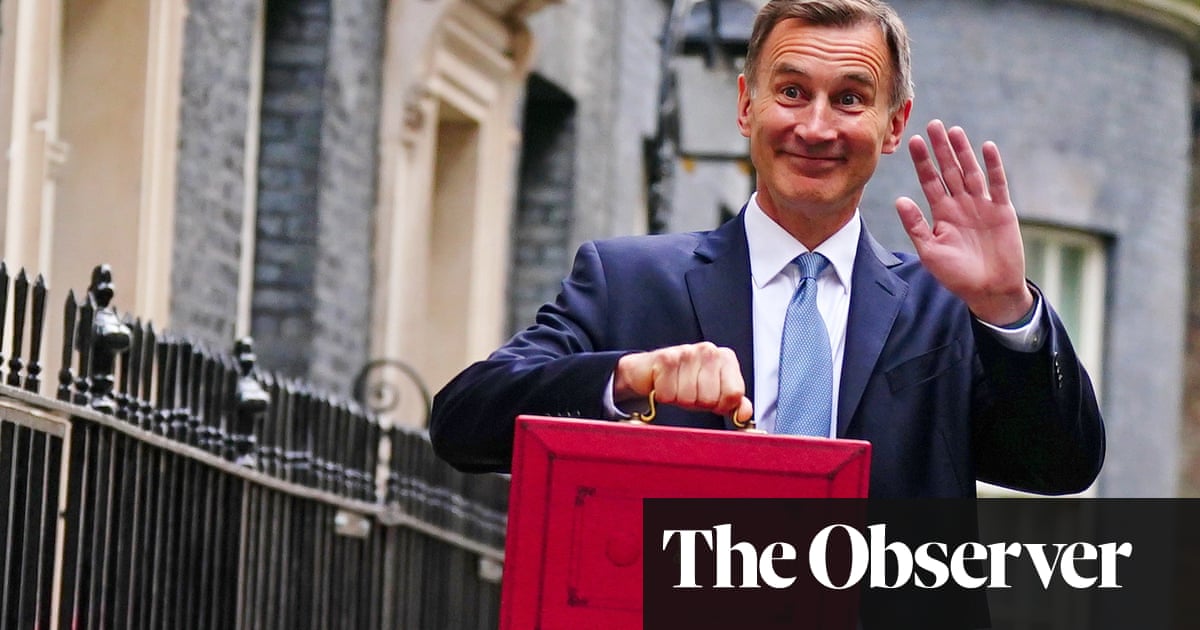
The final verdict is in: the supreme court last week upheld the court of appeal’s judgment that deporting asylum seekers to Rwanda is unlawful , because it would be unsafe for them. It means that Rishi Sunak must return to the drawing board his flagship policy aimed at reducing the number of people trying to get to the UK to seek refuge by detaining those who do and sending a small fraction to Rwanda for their claims to be assessed and granted there. But, while the supreme court judgment underlines the immorality of the UK seeking to shirk its international responsibilities on refugee protection, even had the courts ruled the policy lawful, it would not have had the deterrent effect the prime minister has promised voters.
In June, the court of appeal assessed the evidence and ruled that deporting asylum seekers to Rwanda was unlawful due to the risk that people with valid asylum claims who were sent to Rwanda would be returned to their home countries, where they would face persecution or inhumane treatment. The supreme court also looked at a breadth of evidence and unanimously concluded that the court of appeal was right to reach this judgment. It cited evidence for Rwanda’s poor human rights record, including extrajudicial killings, enforced disappearances and torture; serious defects in Rwanda’s asylum processes, including an untested right to appeal; its surprisingly high rejection rates for countries in known conflict zones; and its failures to honour an agreement with Israel, which tried a similar scheme, not to deport asylum seekers with valid claims to their home countries. The judges made clear that this evidence would have put the UK not just in breach of the European convention on human rights but of many other international treaties ratified by the UK as well as several domestic statutes.
Extraordinarily, the Conservatives’ deputy chairman, Lee Anderson, reacted by saying that the government should break the law and deport people to Rwanda anyway. Ministers have unsurprisingly distanced themselves from this call worthy of a dictator. Instead, the prime minister has announced his intention to sign a binding treaty with Rwanda in place of the existing memorandum, and pass domestic legislation that would guarantee any further legal challenge would fail.
This will not work on several levels. Signing a binding treaty with Rwanda around how it processes asylum claims – even if it promises not to deport those who are not granted asylum, as hinted at by a Rwandan government official last week – will not in itself overturn the evidence that the system is unsafe and that Rwanda has a track record of not honouring agreements in this area with third countries. It is also not clear how primary legislation could prevent a further challenge to a reformulated scheme in the UK courts, and or even how the government could get this legislation through the House of Lords in the next year. The chances of the government being able to begin deportations to Rwanda before a general election are minuscule.
But perhaps that is Sunak’s intention. He will know as well as anyone how unlikely he is to achieve this. He will also know how unlikely his policy is to have the deterrent effect that he claims: there is strong evidence that deporting a fraction of asylum seekers who come to the UK to Rwanda will have little impact, as even the Home Office’s own internal analysis concludes. Instead, through its Illegal Migration Act the government has created a need to detain what will probably be hundreds of thousands of people – most of whom would be granted refugee status – arriving in the UK through irregular means, with nowhere to send them. It is not only grossly inhumane, it is completely impracticable.
Which leaves the impression that the prime minister’s true intent is not to stop the small boats but to pick a fight with judges in the desperate hope that voters will then blame others for the government’s failures on asylum policy. A populist strategy, with echoes of Brexit: blame someone else for a country’s malaise, proffer a solution you claim is the answer to everything but is no such thing, and convince voters that you are the only person who can deliver it. But the Conservatives’ dire poll ratings should serve as a warning that this strategy never works in the medium term.
In the meantime, the real problems in the refugee system will continue to get worse. That is not numbers: the UK is home to a tiny fraction of the world’s refugees; we host just 230,000 refugees compared with 2.1 million in Germany and 3.6 million in Turkey. The biggest issue is the huge backlog in processing claims, which has got much worse in recent years, trapping refugees in abject poverty while they are waiting, and racking up unnecessary costs for the taxpayer.
If Sunak’s true motivation were to reduce the number of people losing their lives on the dangerous Channel crossing, he would try to negotiate a returns agreement with France, whereby the UK takes the same number of asylum seekers it returns to France but prioritises those who have family in the UK. Instead, he is pursuing a political strategy that is unlikely to win him votes and will achieve nothing apart from polarising the public conversation about refugees. It will be a sorry legacy indeed.












